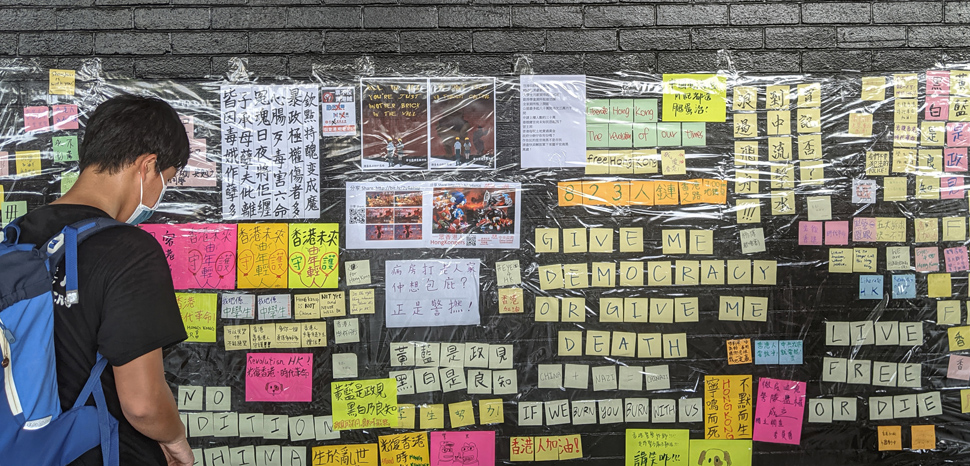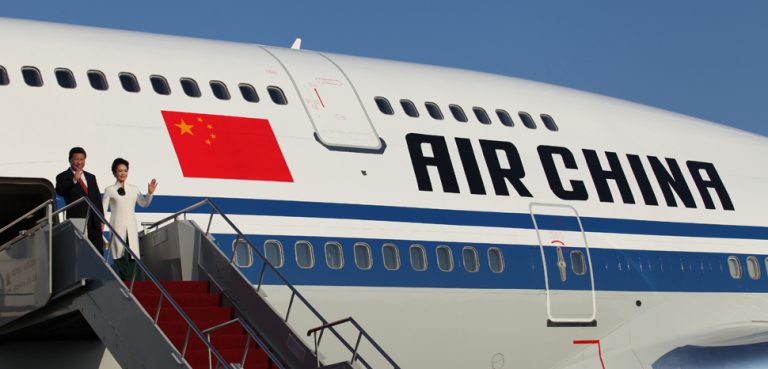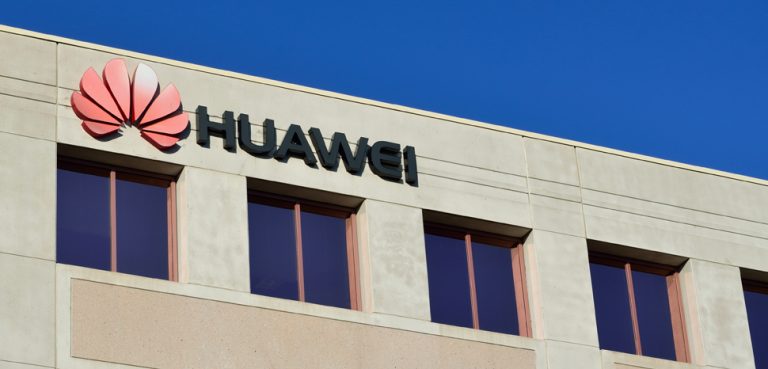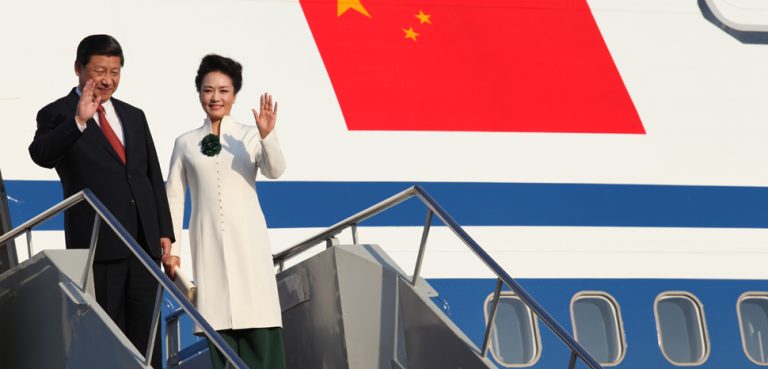June 4th, 2019 marked the 30th anniversary of the Tiananmen Square Incident. The blood and tears that came together with the military crackdown on June 4th, 1989 in Beijing and across Mainland China was a result of a 6 weeklong student movement demanding an end to corruption, the institutionalization of good governance, and transparency of the CCP and its governing practices.
While the Goddess of Democracy was hoisted in Tiananmen Square and large banners flew with the Chinese characters for democracy 民主主義/ Mínzhǔ zhǔyì, students were not demanding American style democracy or an end to the CCP in 1989.
As the Tiananmen Papers demonstrated in hindsight, students at the time formulated a statement read out on May 4th in the Square, requesting the government deal with many of the socio-economic problems that had emerged in the first decade of reform and opening. Specifically, they urged the CCP to hasten political and economic reforms, guarantee constitutional freedoms, fight corruption, adopt a press law, and allow the establishment of privately-run newspapers.
It was an important moment in contemporary Chinese history as we saw ordinary students (but also other members of society) begin a process in which they voiced their concerns over government policy and its negative impacts on society. We saw a nascent civil society emerge in Tiananmen Square with the democratization of the voices that could positively help shape government policy.
Regretfully, leaders in Zhongnanhai during this period of social unrest saw the Tiananmen student movement as a threat to CCP centrality rather than an instrument to re-energize, re-calibrate and to truly realize A People’s Republic of China, rather than a CCP’s Republic of China.
Fast forward to today in Hong Kong, we have a very small minority of Hong Kong citizens demanding independence from China. The so-called Localists, while vocal, have little widespread appeal in Hong Kong. Ordinary citizens, businesses, the legal community and even most politicians are realistic about their ability to be independent from China.
Many as well, despite a sense of distinct identity, also recognize that their ancestral roots and family linkages in the Mainland today are historical, cultural, and economic ligatures that are not easily emotionally or realistically severed.
Five main demands have emerged amongst Hong Kong protestors: 1) withdraw the extradition bill; 2) for leader Carrie Lam to step down; 3) an inquiry into police brutality; 4) for those who have been arrested to be released; and 5) greater democratic freedoms. Noticeably absent from this list is independence, overthrowing the CCP, or becoming a fully democratic society.
The first four are unique to the Hong Kong protests and are not related to the Tiananmen Square student movement 30 years ago. Nonetheless, the fifth demand echoes strongly with the Tiananmen movement in that Hong Kong protesters are demanding that their one country-two systems form of government otherwise known as Basic Law, remains intact, robust and free from central government intervention.
In relation to protecting the core tenants of Hong Kong’s unique status as part of China, protestors are pushing back from what they perceive as the systematic attack on their way of life, political and cultural norms, and feeling of having a distinct and unique identity in the context of China.
The extradition bill, while not forced upon Hong Kong by Beijing, left the flood gates open to Hong Kong citizens and residents being legally extradited to the Mainland for trial under the PRC’s politicized legal system.
Surreptitiously kidnapped Hong Kong booksellers who were brought to the Mainland against their will further buttresses the concern of quotidian Hong Kong citizens about the extradition law. In their minds, if Beijing would kidnap Hong Kong citizens without an extradition law, what would Beijing do if there was an extradition law?
Beijing’s efforts to push nationalist education that clearly whitewashes contemporary Chinese history further contributes to distrust between Beijing and Hong Kong. It flies in the face of Hong Kong’s identity as a city of ethnic Chinese émigré, many of which who fled Mainland China because of calamitous governance resulting in domestic chaos most typified by the Great Leap Forward, the Cultural Revolution, and the Tiananmen Square Incident.
Beijing needs to recognize that Hong Kong citizens by-in-large seek a partner in Beijing that abides by and supports the Basic Law promised to Hong Kong. This includes compelling the Hong Kong government to strengthen transparency, rule-of-law, and good governance.
Financial aid to do deal with growing socio-economic inequalities without ties that would assimilate Hong Kong into the Mainland economy would also bolster confidence in the Central government that its initiatives vis-à-vis Hong Kong are not merely tactics to absorb Hong Kong but strategies to act as a force-multiplier in terms of making Hong Kong more competitive.
Withdrawing the extradition bill and calling for leader Carrie Lam to step down would also be appreciated commitments to Hong Kong citizens and they should be palpable to the leaders in Zhongnanhai, after all it was Carrie Lam, not the leadership in Beijing that tabled the bill for consideration.
Inquiries into police brutality and releasing those who have been arrested is a more delicate task, but one Hong Kong’s independent judiciary can proceed with. Neither police brutality nor the release of violent protesters, however small is in the interests of Hong Kong. A transparent and apolitical legal investigation would re-invigorate confidence in Hong Kong people that its legal system remains intact.
Lastly, recognizing Hong Kong’s distinctiveness, including its values, identity and international inclination would further address the core line of distinction between Hong Kong and the Mainland, the lack of recognition of their shared and different identities.
Fairly or not, much rides on the decision’s leaders in Beijing and Hong Kong to avoid the bloodshed that has left an indelible mark on the world’s image of China. Leaders in Zhongnanhai must recognize that the current unrest has similarities to the Tiananmen Student movement 30 years ago. This time though, the unrest is in one of the world’s global cities. Hong Kong’s global connectiveness, its role as a global financial centre, and its position as the major financial centre for capital to move freely outside of China mean that Beijing must navigate through this domestic crisis with finesse to avoid unleashing a transformative geopolitical event that could shake the foundations of political power in China.
The views expressed in this article are those of the author alone and do not necessarily reflect Geopoliticalmonitor.com or any institutions with which the author is associated.




